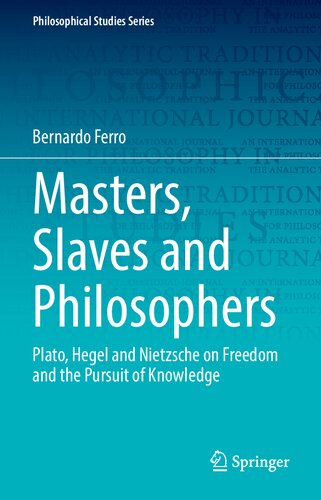

Most ebook files are in PDF format, so you can easily read them using various software such as Foxit Reader or directly on the Google Chrome browser.
Some ebook files are released by publishers in other formats such as .awz, .mobi, .epub, .fb2, etc. You may need to install specific software to read these formats on mobile/PC, such as Calibre.
Please read the tutorial at this link: https://ebookbell.com/faq
We offer FREE conversion to the popular formats you request; however, this may take some time. Therefore, right after payment, please email us, and we will try to provide the service as quickly as possible.
For some exceptional file formats or broken links (if any), please refrain from opening any disputes. Instead, email us first, and we will try to assist within a maximum of 6 hours.
EbookBell Team

4.3
98 reviewsThis book examines the relationship between freedom and true knowledge, which is a central part of the hotly debated issue of human freedom.
Is truth necessary for the attainment of freedom? Does a free life require a clear understanding of reality? And if so, to what extent? These questions lead back to a classical philosophical debate, of which the first major chapter was written by Plato. In the dialogues, he describes human life as a peculiar form of imprisonment and calls for a global liberation of human cognition. This work analyses this ambitious project and its unique influence on the work of two modern authors, Hegel and Nietzsche, who explicitly linked the notions of ignorance and truth to those of bondage and freedom―or slavery and mastery―and whose philosophies are also centred on the liberation of human consciousness.
Following a historical and systematic approach, this book is of interest to readers who are reasonably acquainted with the history of ancient and modern philosophy, including undergraduate and graduate students, as well as scholars working on Plato, German Idealism, Nietzsche and other related fields.